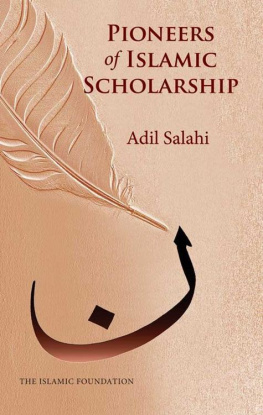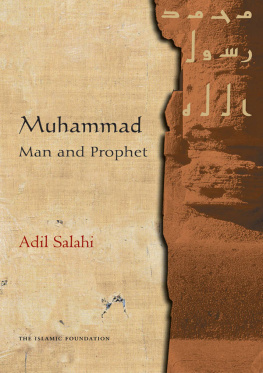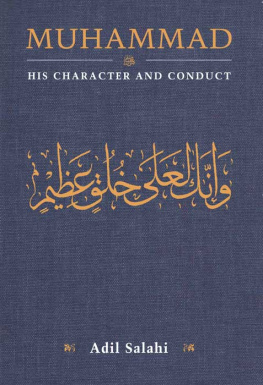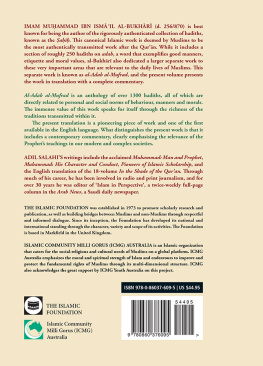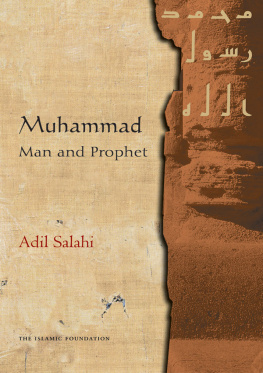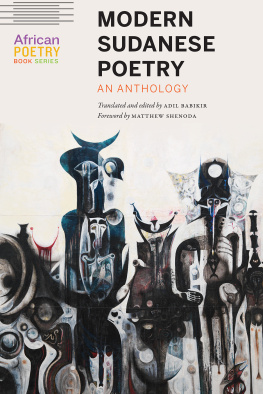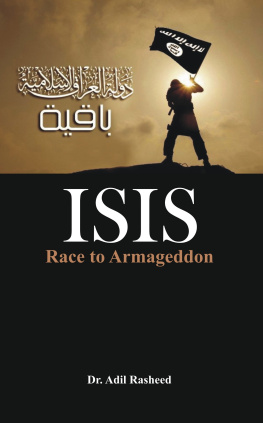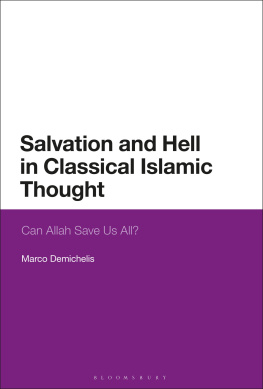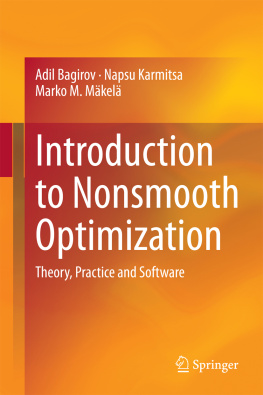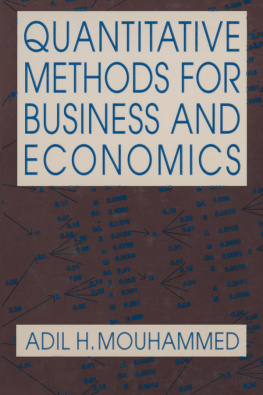Adil Salahi - Pioneers of Islamic Scholarship
Here you can read online Adil Salahi - Pioneers of Islamic Scholarship full text of the book (entire story) in english for free. Download pdf and epub, get meaning, cover and reviews about this ebook. year: 2013, publisher: Kube Publishing Ltd, genre: Detective and thriller. Description of the work, (preface) as well as reviews are available. Best literature library LitArk.com created for fans of good reading and offers a wide selection of genres:
Romance novel
Science fiction
Adventure
Detective
Science
History
Home and family
Prose
Art
Politics
Computer
Non-fiction
Religion
Business
Children
Humor
Choose a favorite category and find really read worthwhile books. Enjoy immersion in the world of imagination, feel the emotions of the characters or learn something new for yourself, make an fascinating discovery.
- Book:Pioneers of Islamic Scholarship
- Author:
- Publisher:Kube Publishing Ltd
- Genre:
- Year:2013
- Rating:3 / 5
- Favourites:Add to favourites
- Your mark:
- 60
- 1
- 2
- 3
- 4
- 5
Pioneers of Islamic Scholarship: summary, description and annotation
We offer to read an annotation, description, summary or preface (depends on what the author of the book "Pioneers of Islamic Scholarship" wrote himself). If you haven't found the necessary information about the book — write in the comments, we will try to find it.
Pioneers of Islamic Scholarship — read online for free the complete book (whole text) full work
Below is the text of the book, divided by pages. System saving the place of the last page read, allows you to conveniently read the book "Pioneers of Islamic Scholarship" online for free, without having to search again every time where you left off. Put a bookmark, and you can go to the page where you finished reading at any time.
Font size:
Interval:
Bookmark:
ISLAMIC SCHOLARSHIP
Adil Salahi
THE ISLAMIC FOUNDATION
Published by
THE ISLAMIC FOUNDATION,
Markfield Conference Centre,
Ratby Lane, Markfield, Leicestershire LE67 9SY, United Kingdom
Tel: (01530) 244944, Fax: (01530) 244946
E-mail:
Website: www.islamic-foundation.org.uk
Quran House, PO Box 30611, Nairobi, Kenya
PMB 3193, Kano, Nigeria
Copyright The Islamic Foundation 2006/1427AH
All rights reserved. No part of this publication may be reproduced, stored in a retrieval system, or transmitted in any form or by any means, electronic, mechanical, photocopying, recording or otherwise, without the prior permission of the copyright owner.
British Library Cataloguing-in-Publication Data
Salahi, M. A.
Pioneers of Islamic Scholarship
1. Theologians.
2. Islam - Doctrines - History
I. Title
II. Islamic Foundation (Great Britain)
297.20922
ISBN 13: 978-0-86037-582-1
ISBN 10: 0 86037 570 6
Typeset by: N.A.Qaddoura
Cover design by: Suhaib Salahi
Cover concept from Qurn: 68

Contents


Arabic Consonants
Initial, unexpressed medial and final:

Vowels, diphthongs, etc.
Short: 
Long: 
Diphthongs: 

AS PART OF the Islamic Foundations objective to promote a better understanding of Islam among the English-speaking readership, we have great pleasure in bringing out the present publication. It provides a panoramic view of the glorious intellectual tradition of Islam. While focusing on the contributions of eleven eminent Muslim scholars in the field of jurisprudence belonging to different eras and places, the present work illustrates how the best Muslim minds have responded to the challenges of the day. Notwithstanding their divergent views on a variety of issues, the most striking common ground among all of them is their unflinching commitment to the primary sources of Islam the Qurn, the Sunnah and the adth. Equally valuable is the spirit of their mutual love and respect. Their assiduous pursuit of learning, their mental sharpness in relating the message of Islam to the changing concerns of the day and their altruistic mission of guiding fellow Muslims in the numerous life situations are both admirable and awe-inspiring. Reading their account one feels humbled by their single-minded devotion to their Islamic faith, the sacrifices made by them in the cause of faith and scholarly pursuits and their concern for preserving and transmitting the Islamic teachings and heritage.
I am grateful to my learned colleague, Br Adil Salahi, Director, al-Furqan Heritage Foundation, London, for having spared his precious time for writing this much-needed work, which, apart from being highly informative and thought-provoking, will be a source of inspiration for Muslim youth to drink deep at the fountain of scholarship. We are sure they will try to emulate these distinguished Muslim scholars in order to revitalize the Muslim way of life. Numerous challenges and issues stare us in the face presently. The guidance provided by the present account of eminent Muslim scholars and fuqah should be a source of strength for all of us.
I take this opportunity to thank the production team of the Islamic Foundation, particularly Br Naiem Qaddoura for his important role in the production of this work. We propose to bring out more titles of a similar kind, with a view to making the English-speaking readers familiar with the achievements of leading Muslim scholars and their valuable contributions to the field of the Qurn and adth studies and various other disciplines. We look forward to receiving suggestions from our readers on the proposed series.
| Leicester | M. Manazir Ahsan |
Sha bn 1427 H bn 1427 H | Director General |
| September 2006 |


UNTIL RECENTLY, PEOPLE felt that following a school of Islamic jurisprudence, or Fiqh, was a basic Islamic requirement. Indeed, in many parts of the Muslim world, people still think that it is necessary for them to adhere to their own schools of Fiqh. When they put a question to a scholar, they do not forget to tell him to which school they belong, asking him to give them the answer in accordance with their school. While they respect the other schools, they may feel uneasy if they were to know that a certain practice they have been doing is approved by other schools, but not their own. Thus, a person who has been brought up as a anaf may feel uneasy about combining prayers when travelling, and would not do it unless he finds no alternative, such as having to take a flight that allows him no chance of attending to his prayers without combining two of them together, which is perfectly acceptable according to all other schools.
Other people are more relaxed about this, and they feel that the views of the four major schools are acceptable. Hence, they do not mind to receive a ruling based on a different school to their own, provided that it is one of the four. Yet hardly anyone, apart from people with Islamic studies background, knows anything about the differences that distinguish each school from the rest, let alone the reasons for such differences. Nor are the majority of people aware that beyond the four schools of Fiqh there are others which continue to be followed by millions of Muslims in different parts of the world, and are recognized by the great seats of learning.
Little do most Muslims realize that they do not actually follow any school of Fiqh. In everyday matters, such as prayers and fasting, people follow the practices they learnt in childhood. When they are facing a special situation, they put it to a scholar who will look into it and also into the circumstances of the individual putting the question. He will give the answer that is most suitable for that person in his special circumstances. Unless he does so, he is not a scholar worth his salt. Which school of Fiqh upholds this view is not an issue. The issue is what serves the interests of the questioner best, as long as it complies with Islamic directives and teachings and does not encroach on what God has forbidden.
Yet the fact that we have four, or indeed five Sunn schools of Fiqh, is an accident of history. We could have easily added two or six more. The fact is that the four schools were established within a short period of each other. Ab anfah and Mlik were born towards the end of the first century, and Amad, the youngest of the four Imms, was born in 164 H. In the same period there were many other scholars of similar standing, such as al-Awz
Font size:
Interval:
Bookmark:
Similar books «Pioneers of Islamic Scholarship»
Look at similar books to Pioneers of Islamic Scholarship. We have selected literature similar in name and meaning in the hope of providing readers with more options to find new, interesting, not yet read works.
Discussion, reviews of the book Pioneers of Islamic Scholarship and just readers' own opinions. Leave your comments, write what you think about the work, its meaning or the main characters. Specify what exactly you liked and what you didn't like, and why you think so.

